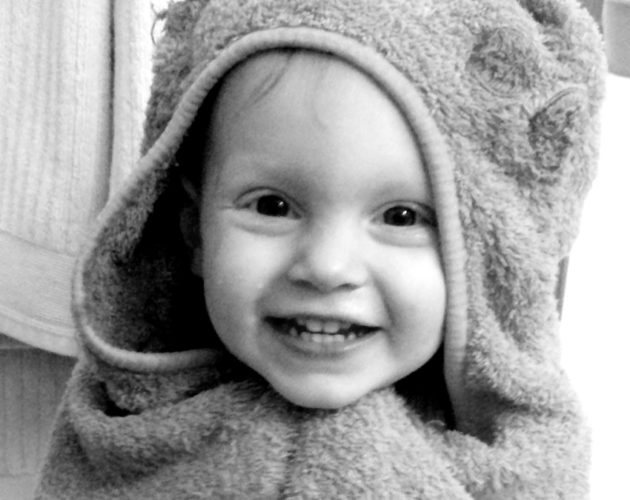
The Day You Find Out Your Child Has Cancer
I didn't want to face this thing. I didn't know if I could face this thing.
This post is part one in an ongoing series of posts about my son Jude and his fight with cancer.
Part 1 – The Day You Find Out Your Child Has Cancer
Part 2 – A Goliath Named Neuroblastoma
Part 3 – “The Tumor Was Not Resectable.”
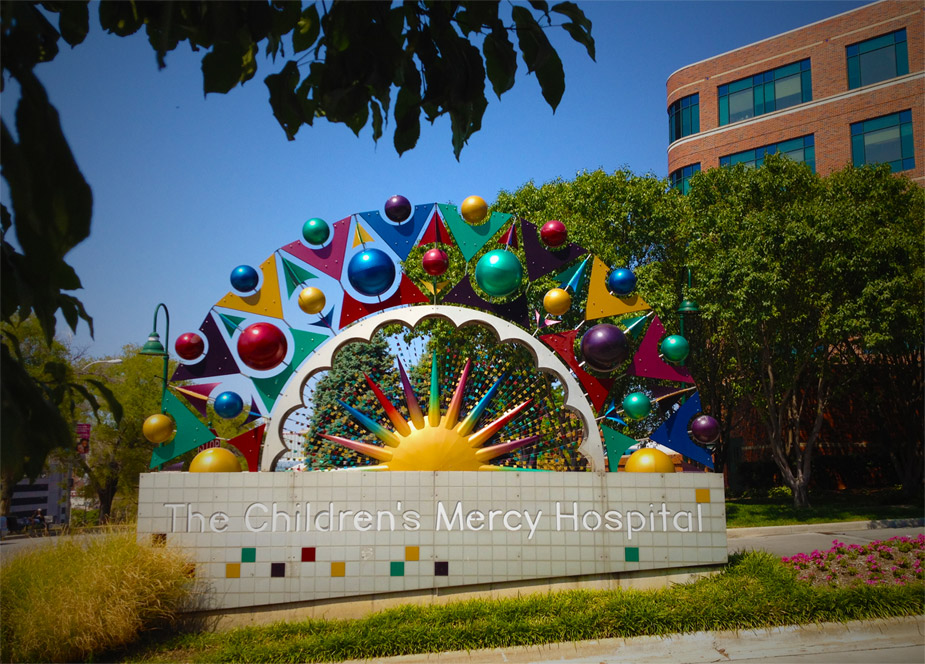 We had gone to the hospital, like so many other times before, to consult with a team of doctors and have more testing done. We knew in advance this time would be a little different. The plan was for our two-year-old son, Jude, to have a CT scan done and possibly admit him into the children’s hospital for a day or so in order to monitor his eating and bowel issues closely and try to pack some weight on him. It wasn’t the most convenient time to be planning a multiday stay at the hospital. My wife Ashlie was 8 ½ months pregnant with our second son, and I was afraid that he might be born any day. But we knew our lives were only going to become more hectic after he was born, so we were taking care of things now.
We had gone to the hospital, like so many other times before, to consult with a team of doctors and have more testing done. We knew in advance this time would be a little different. The plan was for our two-year-old son, Jude, to have a CT scan done and possibly admit him into the children’s hospital for a day or so in order to monitor his eating and bowel issues closely and try to pack some weight on him. It wasn’t the most convenient time to be planning a multiday stay at the hospital. My wife Ashlie was 8 ½ months pregnant with our second son, and I was afraid that he might be born any day. But we knew our lives were only going to become more hectic after he was born, so we were taking care of things now.
For over a year, Jude had been struggling with severe gastrointestinal distress. He had a small appetite, and suffered from constant diarrhea. As first-time parents, we were understandably alarmed. Jude was checked out by our pediatrician, who then referred us to the Gastrointestinal Clinic in the hospital, the same hospital where my wife was employed as a pediatric ICU nurse. Although they couldn’t pin down exactly what was wrong, they were pretty sure it was simply a bad case of “toddler’s diarrhea” or possibly a hard-to-diagnose food allergy. And so this dance went on: we’d visit the hospital and meet with a team of specialists who would recommend new diet restrictions and feeding schedules in order to isolate the problem, and after a few weeks of seeing no change we’d come back and meet with a new group of specialists who’d make their own recommendations. Nobody seemed terribly alarmed, and so we tried to not be neurotic parents and trust the doctors knew what they were doing.
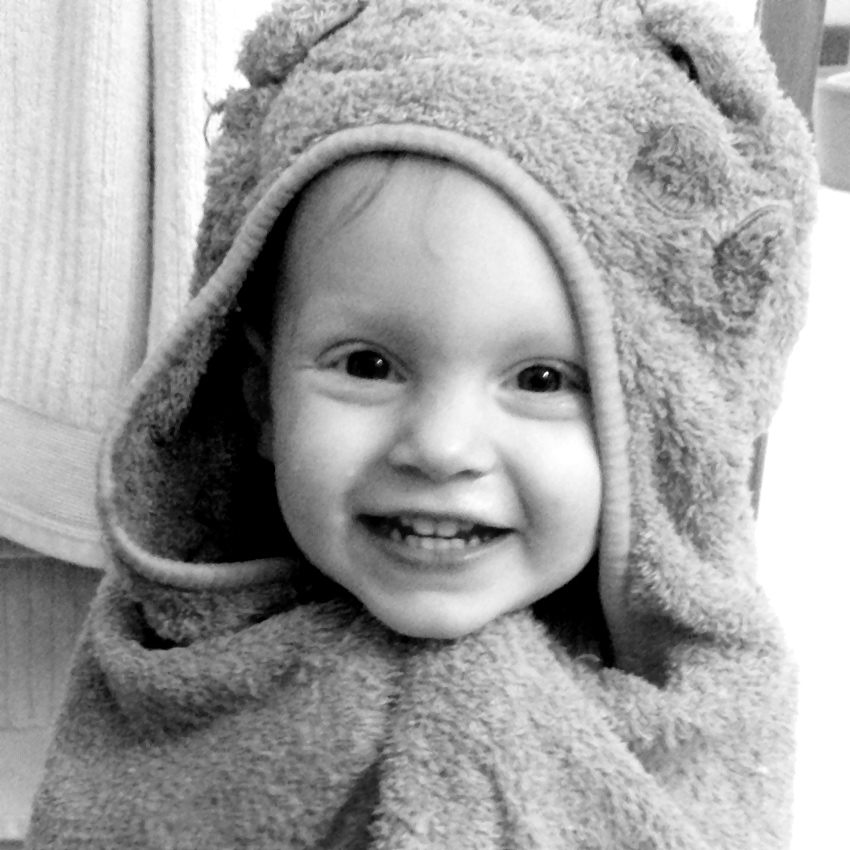 It was only after Jude dropped completely off the growth chart and started losing weight that doctors began speaking in a more alarming tone. Our pediatrician was recommending that we have a feeding tube implanted into Jude’s stomach in order to get him enough calories. The prospect of doing something so extreme began to worry my wife and I, so we decided to take our son to another research hospital in order to get a second opinion before making a decision.
It was only after Jude dropped completely off the growth chart and started losing weight that doctors began speaking in a more alarming tone. Our pediatrician was recommending that we have a feeding tube implanted into Jude’s stomach in order to get him enough calories. The prospect of doing something so extreme began to worry my wife and I, so we decided to take our son to another research hospital in order to get a second opinion before making a decision.
We made an appointment with the gastrointestinal clinic and within 10 minutes of arriving, we knew something was wrong. The scan technician called in another doctor, and eventually the chief of radiology to look at the scans. After a long, awkward, tense time of watching him frown at the computer monitor that was displaying the scans, he told us he had found an “anomaly”. He saw an unidentifiable large mass behind our two-year-old son’s liver, and recommended that we get a CT scan scheduled as soon as possible.
In that moment, as alarming as it was, I didn’t give too much concern to this “unidentifiable large mass”. Jude had been suffering from his problem for over a year, and he couldn’t have had a tumor that long, right? Plus, the doctor had explained that it could be several other things that, while odd, may not be of any real concern. Bad stuff didn’t happen to people like us, and I just knew that this wasn’t going to be an issue either.
“A large tumorous mass… about the size of a softball… strongly suspect neuroblastoma cancer… stage 3 or 4.”
And so, on the first day of August 2012, we found ourselves sitting in a corner room on the sixth floor of the hospital where Ashlie worked. My wife was holding our son Jude, who was fading in and out of sleep, still shaking off the effects of the anesthesia from his CT scan. I was staring out the window at the downtown Kansas City skyline when a large team of doctors entered our room to give us the report from the scans. A doctor introduced himself as the Chief of Oncology, a term I was not sure I knew the definition of. I was completely unprepared for what he told me next. “A large tumorous mass… about the size of a softball… strongly suspect neuroblastoma cancer… stage 3 or 4.”
I remember consciously feeling the blood draining from my face, how cold my hands felt, the tightness in my throat. How could this be true? My little boy, my first-born son, was laying asleep in his mother’s arms just a few feet away from me. He wasn’t sick. He wasn’t like one of those cancer kids. He was a happy child who, other than having some sort of bowel and stomach issue, was otherwise healthy.
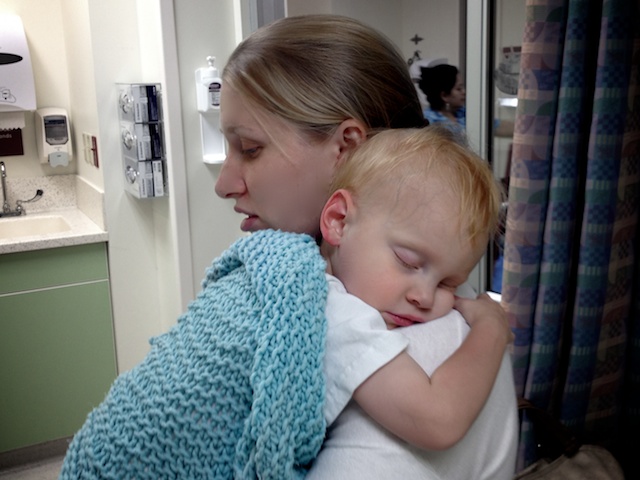 The doctor continued to explain what a cancer was, how it worked, what causes them. He was very kind and gentle about it, and it was obvious to me that he had given this speech many times before. I knew I was nodding my head, as if to say I understood what he was telling me, but inside I was seething. The incomprehensible unfairness of it all just exploded in my chest. “What the fuck just happened? Who does this guy think he is?” I was furious. I wanted to throw something through the big glass window in our room. I wanted to break something. This was not right. This child is innocent and has done nothing to deserve to suffer. “Someone is responsible for this, and I want to make them pay.” And without warning, big, heavy hot tears began streaming down my face. My lip was shaking violently, and I could taste the bitter saltiness of my own sorrow made manifest.
The doctor continued to explain what a cancer was, how it worked, what causes them. He was very kind and gentle about it, and it was obvious to me that he had given this speech many times before. I knew I was nodding my head, as if to say I understood what he was telling me, but inside I was seething. The incomprehensible unfairness of it all just exploded in my chest. “What the fuck just happened? Who does this guy think he is?” I was furious. I wanted to throw something through the big glass window in our room. I wanted to break something. This was not right. This child is innocent and has done nothing to deserve to suffer. “Someone is responsible for this, and I want to make them pay.” And without warning, big, heavy hot tears began streaming down my face. My lip was shaking violently, and I could taste the bitter saltiness of my own sorrow made manifest.
There’s no way to prepare a mom or dad to hear that kind of news. There’s no words that can soften the blow. It wrecks your worldview; totally rips apart the pretty little life you have put together. To their credit, I can’t think of a thing I would have changed about the way the oncology/cancer team gave us the news, but no matter how it’s delivered, it still completely upends your world. Their team stayed with us for over an hour, let us sob and cry, comforted us, answered our questions, gave us an idea of what we could expect to happen in the next few days, and then they left us alone.
And so there we were: my 8 ½ months pregnant wife, myself, and my son who was no longer the healthy, happy, all-American boy I thought he was. Now, he was a cancer patient. And he had this thing inside of him, this horrible, alien mass that was slowly killing him. It all seemed so surreal. Just a few hours before, things had been simple. We were a family of three, soon to be four, living relatively well, happy, unsuspecting lives. I wanted to ignore everything this doctor had just told me. As if I could just forget it, everything would be fine. We could go back to normal. We could just drive home tonight, stop and get ice cream on the way, and watch a Disney movie before bedtime. I didn’t want to face this thing. I didn’t know if I could face this thing.
I didn’t want to face this thing. I didn’t know if I could face this thing.
I knew I had a responsibility as a husband to be strong and confident. My wife was very pregnant, a mess of hormones and discomfort. She would need me to be stable, to be calm and collected. But inside, I was anything but calm. I knew precious little about cancer, no one close to me had ever gone through it. I knew from movies that chemotherapy made you lose your hair and be nauseous, and that basically the goal was to poison you just enough to kill the cancer, but not enough to kill you. I like to think that in front of my wife and Jude, I maintained a confident, optimistic outlook. But there were times that I would go into the bathroom or head out into the hallway and sob. Those first few days, the most frustrating, agonizing part was the sheer helplessness I felt. I kept thinking, if there was something I could do, anything I could do, I would do it. “If it were a money issue, if I could just pay someone enough to fix this thing, I would. I could find a way to come up with the money, rob a bank if I had to. If there was someone who could take care of this, I would make them. I would force them, hold a gun to their head if I had to.” Right and wrong did not apply. I would deal with the ethics of my actions later. Your mind begins to drift to the absurd while thinking these things. “Is there some sort of penance I can pay to God? Do I need to suffer for my own sins? Take this awful thing away from my son and put it on me. I’ll do whatever it takes.” The helplessness is absolutely paralyzing.
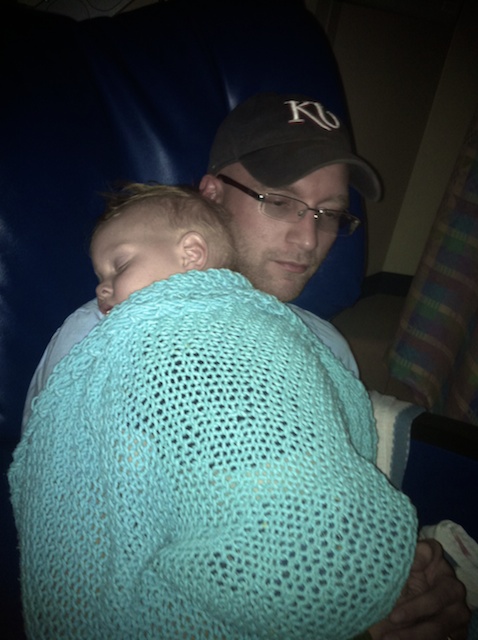 I was scared. Completely bewildered and utterly terrified. This child, my child, was the joy of my life. I had never loved so deeply and unconditionally as I had with him. And now, I was presented with the strong prospect that he would be taken away from me, in the most cruel and merciless way. My first-born son might soon be dead. I didn’t know how much time we might have left with him, and I didn’t know if I could bring myself to increase his suffering in an attempt to prolong his life by some savage treatment. I was afraid I would have to watch him grow weaker and more fragile, as this abhorrent thing devoured his body. And most of all, I was terror-stricken with the thought that soon, the only physical connection that I would have with my son whom I loved would be a stone grave marker.
I was scared. Completely bewildered and utterly terrified. This child, my child, was the joy of my life. I had never loved so deeply and unconditionally as I had with him. And now, I was presented with the strong prospect that he would be taken away from me, in the most cruel and merciless way. My first-born son might soon be dead. I didn’t know how much time we might have left with him, and I didn’t know if I could bring myself to increase his suffering in an attempt to prolong his life by some savage treatment. I was afraid I would have to watch him grow weaker and more fragile, as this abhorrent thing devoured his body. And most of all, I was terror-stricken with the thought that soon, the only physical connection that I would have with my son whom I loved would be a stone grave marker.
We were moved to the cancer floor of the hospital. I didn’t even know they had a cancer floor, an entire level of the hospital set aside for children battling some strange, foreign demon inside their bodies. It didn’t take us long to realize that the cancer floor was less of a collection of individual patients, and more of a community. Some of these kids had been in these rooms for months. Everyone knew everybody on the floor; their stories, their pain, their loss. And while being among a community of people who have shared your experience is reassuring and helpful, every one of those gaunt, bald-headed children being wheeled down the hall was a blade through my chest. It was awful to see these kids suffer, and I couldn’t imagine my child going through that as well.
Read part two of this series of posts: A Goliath Named Neuroblastoma
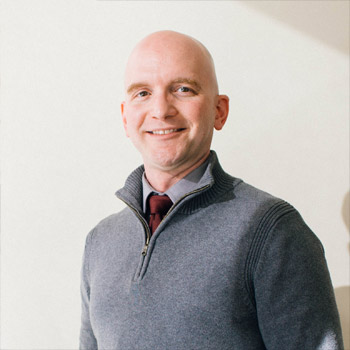 >
>